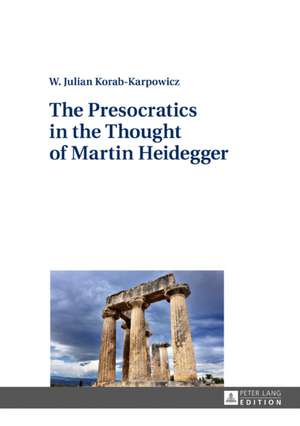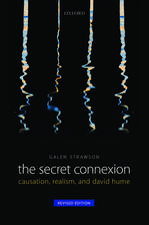The Presocratics in the Thought of Martin Heidegger
Autor W. Julian Korab-Karpowiczen Limba Engleză Hardback – 13 dec 2016
Preț: 485.89 lei
Preț vechi: 631.03 lei
-23% Nou
Puncte Express: 729
Preț estimativ în valută:
92.99€ • 96.72$ • 76.77£
92.99€ • 96.72$ • 76.77£
Carte tipărită la comandă
Livrare economică 14-28 aprilie
Preluare comenzi: 021 569.72.76
Specificații
ISBN-13: 9783631712917
ISBN-10: 363171291X
Pagini: 254
Dimensiuni: 148 x 210 x 25 mm
Greutate: 0.45 kg
Ediția:Nouă
Editura: Peter Lang Copyright AG
ISBN-10: 363171291X
Pagini: 254
Dimensiuni: 148 x 210 x 25 mm
Greutate: 0.45 kg
Ediția:Nouă
Editura: Peter Lang Copyright AG
Notă biografică
W. Julian Korab-Karpowicz is Professor at Lazarski University in Warsaw and Zayed University in Dubai. He received a doctorate from the University of Oxford and has taught at a number of universities, including the Anglo-American University of Prague and Texas State University in San Marcos.
Descriere
The book focuses on Heidegger's thoughtful repetition of early Greek thinking, and his receptive attention to the fragments of the Presocratics from our contemporary age. It presents a deep analysis of Heidegger's interpretations of the Presocratics and contributes to a new, insightful understanding of Heideggerian philosophy.

















